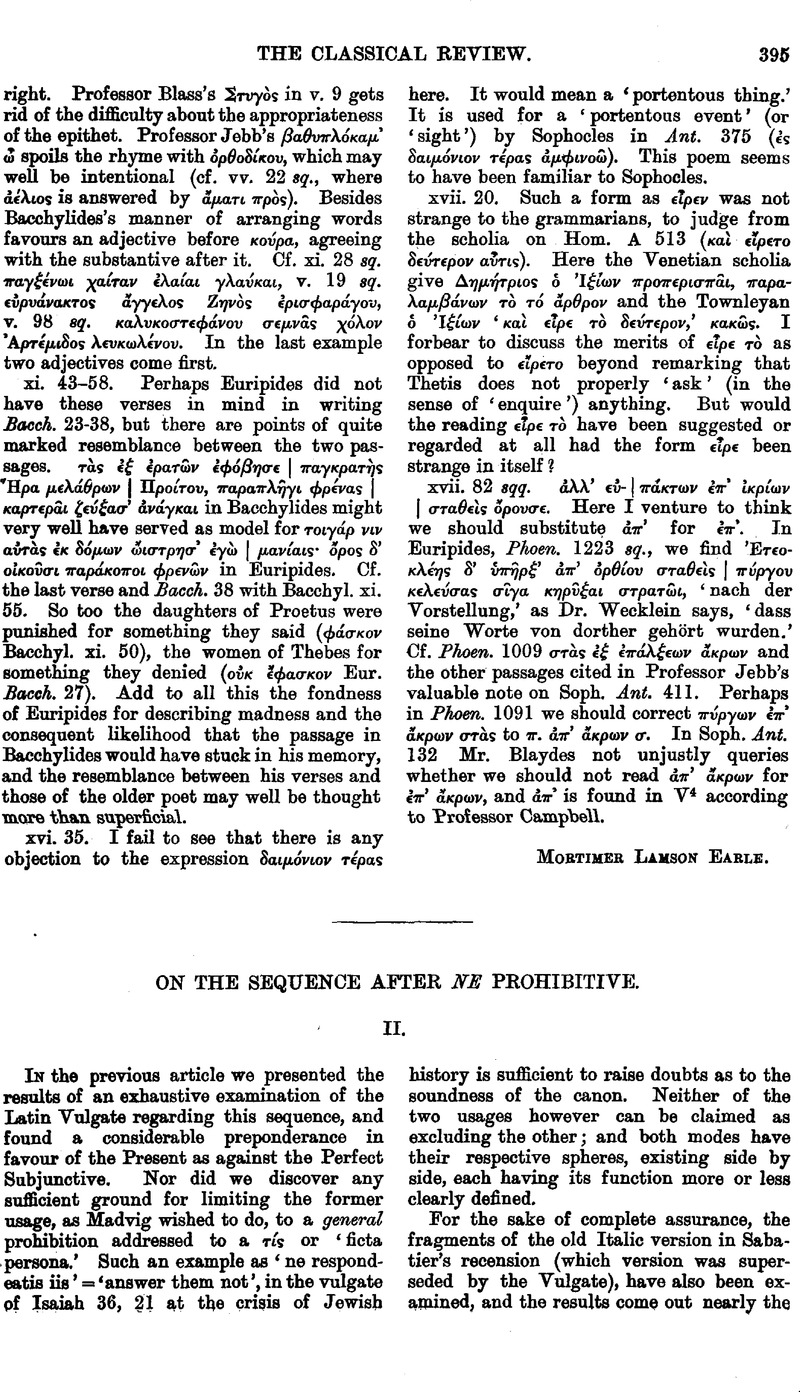No CrossRef data available.
Article contents
On the Sequence after Ne Prohibitive
Published online by Cambridge University Press: 27 October 2009
Abstract

- Type
- Original Contributions
- Information
- Copyright
- Copyright © The Classical Association 1898
References
page 396 note 1 Ne…comprimes in Ritschl's reading of Miles Glor. [571] ii. 7, 88, is in Weise nae, and the meaning is not deprecatory but minatory.
page 396 note 2 In support of this view may be quoted the parallel prayer in Cato, de Re Rust. 141 (142) addressed to Mars, where uti sinas occurs in the petition, according to the Gesner text.
page 397 note 1 The famous epitaph on Pacuvius is in form of a request uttered by ‘hoc saxum’ (Sellar's Poets of Republic, p. 142).
page 397 note 2 Of course there is the possibility of ne respice having been the form in the original story, but that is equally irrelevant for the Madvig contention.
page 398 note 1 Although with 3rd person, this is equivalent to and justifies Ne vos ruminemini, as containing vos not general but particular. A similar remark applies to the other examples of 3rd person in this list, viz. those in Pacuv. Rib. 42 and Attius, Rib. 217 and Incert. Rib. 34 certainly specific, and on p. 138 and 204 probably and most naturally specific also.
page 398 note 2 Ni here = ne; as in Plaut. Menaech. i. 2, 1.
page 398 note 3 This example is probably imprecative, a wish, rather than a prohibition.
page 398 note 4 Schleioher, however, regards attigas as a trace of Latin aorist conj. rather than, as regarded by others, a Present Subj. The presence of cave requires it in this instance to be dropped from the final enumeration.
page 399 note 1 On this form see note 4 on previous page.


